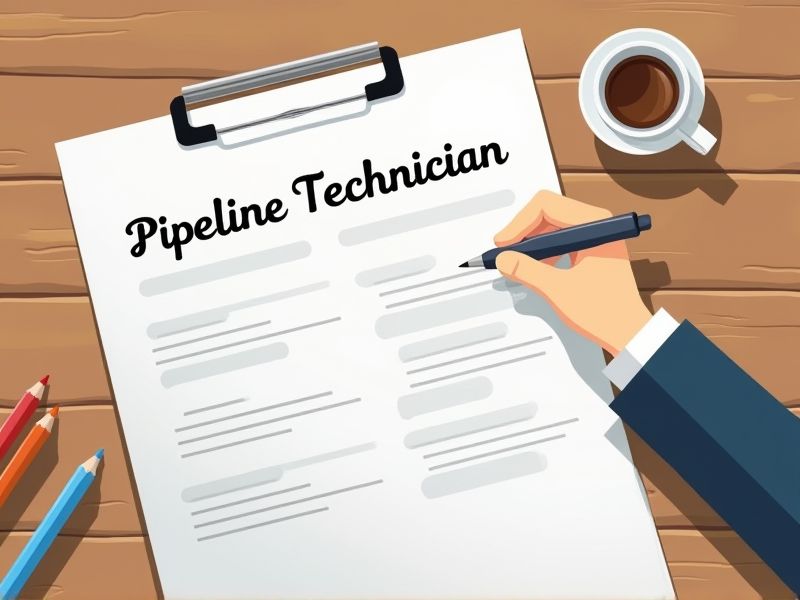
Pipeline Technicians play a crucial role in ensuring the safe and efficient transport of oil, gas, and other materials through pipelines. To meet regulatory standards and industry best practices, these technicians require specific certifications that validate their skills and knowledge. Certifications ensure that technicians are equipped to handle complex systems and potentially hazardous situations. Here are some important certifications you may need as a Pipeline Technician.
API 1169: Pipeline Construction Inspector Certification
The API 1169 certification serves as a standardized benchmark for pipeline technicians, ensuring they meet industry-recognized criteria for safety and competence. By obtaining this certification, technicians demonstrate a strong understanding of pipeline construction processes and safety protocols, reducing the risk of operational hazards. Companies see a reduction in incidents, which in turn, lowers insurance costs and boosts project efficiency. The certification process also enhances the credibility of technicians, increasing their professional opportunities within the field.
NACE Cathodic Protection Certification
Pipeline technicians require the NACE Cathodic Protection Certification because it ensures they understand how to prevent pipeline corrosion, a leading cause of pipeline failures. Without this certification, technicians might lack the necessary skills to design and maintain effective cathodic protection systems, potentially resulting in costly repairs and environmental hazards. NACE certification provides standardized training and validation of expertise, which improves safety and reliability in pipeline operations. Organizations value certified technicians as it minimizes risk, aligns with industry regulations, and promotes adherence to best practices.
API 570: Piping Inspector Certification
API 570 certification ensures that pipeline technicians possess the necessary knowledge of inspection, maintenance, and repair of in-service piping systems, which enhances safety and reliability. Gaining this certification demonstrates a technician's ability to identify potential issues early, reducing the risk of costly failures and downtime. This credential also aligns with industry regulations and standards, ensuring compliance with legal requirements and operational best practices. Pipeline technicians with API 570 certification often find improved career opportunities due to their proven expertise and competence in the field.
OSHA 10-Hour Construction Safety Certification
The OSHA 10-Hour Construction Safety Certification is essential for pipeline technicians because it provides fundamental safety training to prevent workplace accidents and injuries. Knowledge gained through the certification helps identify and mitigate potential hazards in construction environments, reducing the likelihood of incidents. Employers often require this certification to ensure compliance with federal safety regulations, supporting a safer worksite. Possession of the certification can enhance a technician's job prospects and credibility in the field, aligning with industry expectations for safety standards.
H2S Awareness Training Certification
Pipeline technicians often encounter environments where hydrogen sulfide (H2S) is present, posing significant health and safety risks. Understanding the properties and dangers of H2S through training helps technicians recognize and respond to potential exposure effectively. Certification in H2S awareness ensures that technicians can implement appropriate emergency measures, reducing the likelihood of accidents. Regulatory compliance often mandates such training to uphold safety standards in the industry.
Confined Space Entry Certification
Pipeline technicians often work in environments with limited ventilation, which can lead to the accumulation of hazardous gases. Confined Space Entry Certification ensures that technicians are trained to recognize and mitigate these risks effectively. The certification includes protocols for emergency situations, contributing to lower accident rates and enhanced safety compliance. Employers are required to adhere to occupational safety regulations, making this certification essential for lawful and safe operations.
ASME Welding Certification (Section IX)
ASME Welding Certification (Section IX) is needed for a Pipeline Technician to ensure adherence to high safety and quality standards, minimizing the risk of failures. Certification validates the technician's competence in performing welds that withstand the stresses and environmental conditions typical in pipeline operations. It aligns with regulatory compliance, as many jurisdictions require certified welders for infrastructure projects. The certification boosts a technician's credibility and employability, signaling to employers a proven skill set.
CPR/First Aid Certification
Pipeline technicians often work in remote or isolated locations where immediate professional medical assistance isn't available, increasing the importance of CPR/First Aid certification. In the event of an accident or medical emergency, a certified technician can provide critical initial care, stabilizing a coworker until professional help arrives. The certification enhances workplace safety protocols, aligning with industry regulations and ensuring compliance with occupational health standards. Knowledge of CPR and first aid techniques can reduce recovery time from injuries, maintaining workforce efficiency and minimizing downtime in pipeline operations.
Hazardous Materials (HazMat) Certification
HazMat Certification is needed for Pipeline Technicians because it ensures they possess the necessary knowledge to handle and transport dangerous substances safely, reducing risk of accidents. Certification helps technicians understand regulatory requirements, resulting in adherence to government safety standards. Trained personnel can effectively respond to leaks or spills, minimizing environmental impact and protecting public health. Employers prioritize certified technicians to mitigate liability risks associated with hazardous material incidents.
Pipeline Integrity Management Certification
Pipeline Integrity Management Certification equips technicians with standardized knowledge, ensuring they can effectively identify and mitigate potential risks in pipeline infrastructure. This certification fosters a culture of safety by adhering to industry best practices, thus reducing the likelihood of accidents and environmental hazards. With industry advancements, certified technicians remain updated on regulatory compliance and innovative technologies, directly affecting operational efficiency. Employers prefer certified technicians as it enhances credibility and reliability, leading to improved maintenance and reduced downtime.
Summary
As a Pipeline Technician, obtaining certifications could enhance your competency and job prospects. Certification can validate your skills and expertise, which often results in higher pay and job security. Employers may prioritize hiring professionals with relevant certifications, leading to increased career opportunities. This professional development can also expand your technical knowledge, improving efficiency and problem-solving abilities on the job.
